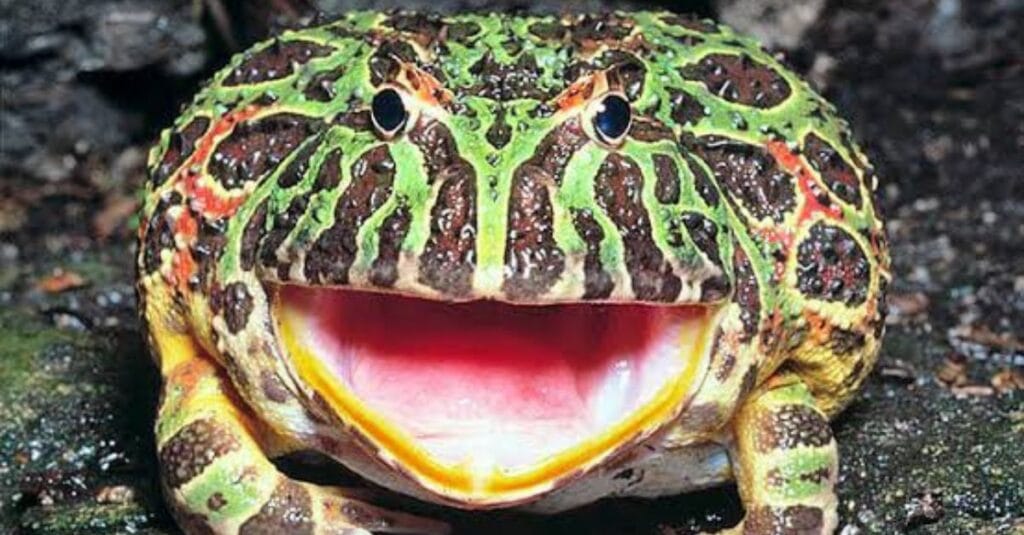🐸 How Long Can Pacman Frogs Go Without Food?
Understanding Fasting, Brumation, and Appetite Loss in Horned Frogs
How Long Can Pacman Frogs Go Without Food? - At a Glance
Healthy adult Pacman frogs can go without food for 2–4 weeks, especially after a large meal or during brumation. Juveniles may fast for up to 1 week safely. Extended fasting with weight loss, lethargy, or illness may signal a problem. Learn when it’s normal—and when it’s time to worry.
It’s not uncommon for Pacman frogs to skip meals or burrow for days without eating. But how long is too long? Whether your frog is burrowed, ignoring food, or seemingly fine but not eating, understanding natural fasting behavior is key to good care.
In this guide, you’ll learn:
Typical fasting durations by age
Reasons your frog might refuse food
When fasting is normal vs. concerning
Tips to encourage healthy appetite
What to do if your frog still isn’t eating
How Long Can Pacman Frogs Safely Go Without Food?
| Age Group | Safe Fasting Range |
|---|---|
| Baby (0–6 mo.) | 2–4 days max |
| Juvenile (6–12 mo.) | Up to 1 week |
| Adult (1+ year) | 2–4 weeks (or more with brumation) |
| Brumating Frogs | 1–2+ months (normal) |
Why Your Pacman Frog Might Stop Eating
Fasting is often natural—but context is important.

Normal Reasons for Fasting
Just ate a large meal
Digesting and resting afterward
Cooler temps or dry tank slow metabolism
Shedding or hiding temporarily
Brumation or seasonal slowdown
Stress from tank changes or handling

Concerning Reasons for Fasting
Dehydration or impaction
Incorrect temperatures
Internal parasites
Mouth infections or injuries
Poor lighting or lack of day/night cycle
Chronic stress or illness
How to Tell If Fasting Is a Problem
Watch for these warning signs
| Symptom | Possible Issue |
|---|---|
| Weight loss or sunken sides | Malnutrition or illness |
| Lethargy or weak response | Temperature, dehydration, or illness |
| Bloating or straining | Impaction or constipation |
| Pale or patchy skin | Infection or dehydration |
Tip: If your frog hasn’t eaten in 2+ weeks and shows any of these signs, it’s time to take action.
Tips to Encourage Eating
Offer Favorite Prey
Try variety: crickets, nightcrawlers, dubia roaches, silkworms, or hornworms.
✅ Feed at Night
Pacman frogs are nocturnal—feed when lights are dim or off.
✅ Use Tongs or Wiggle Prey
Trigger a strike with movement. Dead prey should wiggle on feeding tongs.
✅ Soak in Lukewarm Water
A 15–20 minute soak may help with hydration and digestion, improving appetite.
✅ Check Tank Setup
Ensure your habitat matches the frog’s natural needs:
Temps: 75–85°F
Humidity: 60–80%
Loose, moist substrate for burrowing
Minimal handling or noise
FAQ: Pacman Frog Feeding Gaps
Q: My adult frog hasn’t eaten in 3 weeks—should I be worried?
A: If they’re hydrated, alert, and maintaining weight, it may still be normal. Monitor closely and try soaking + food variety.
Q: Can brumating frogs starve?
A: No, their metabolism slows drastically. Healthy frogs can go weeks or months without food during brumation.
Q: Should I force-feed my frog?
A: Only under vet supervision. Force-feeding can cause more harm than good if done incorrectly.
